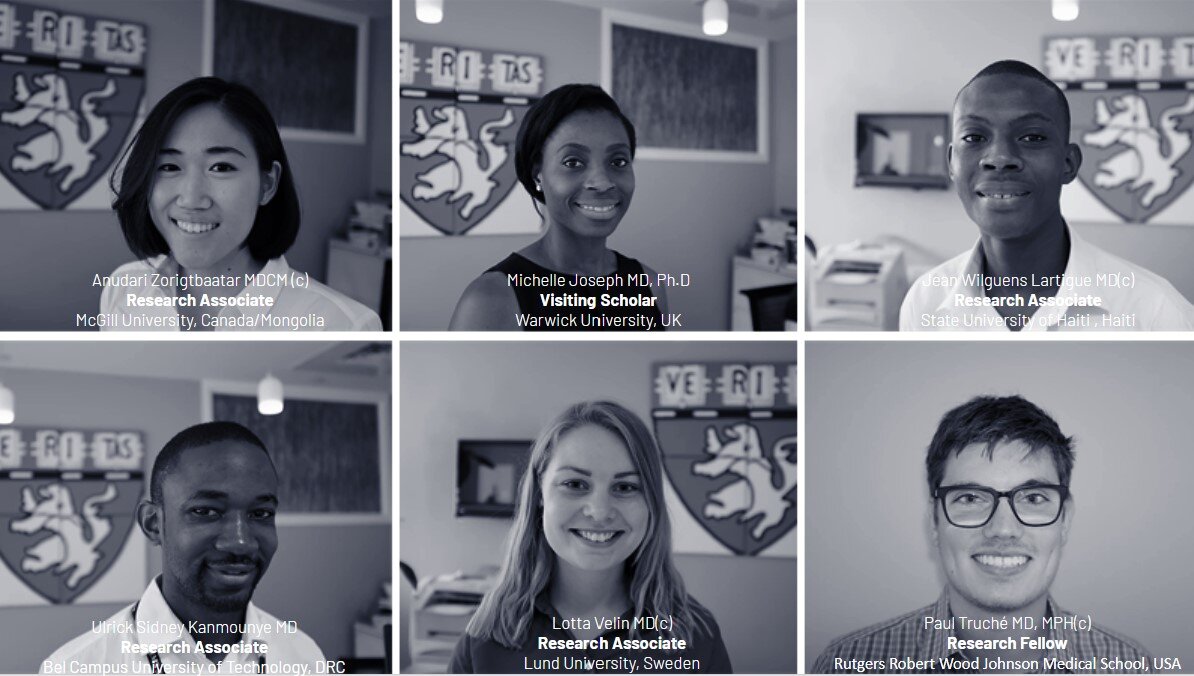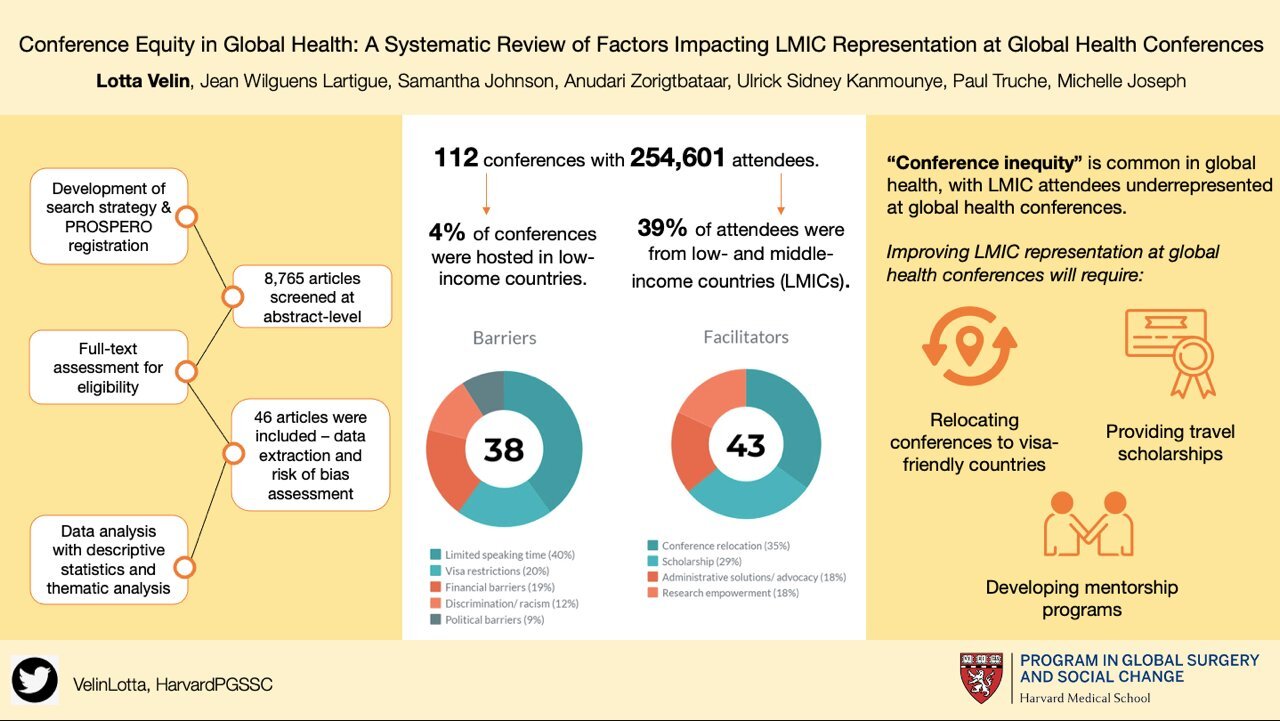
Barriers and Facilitators to Conference Attendance by Researchers from LMICs: A Multi-study Project
My story is not an exception and LMIC researchers are not the only ones affected by these exclusionary practices. Colleagues from HICs are losing the contributions and critical insight of their LMIC counterparts, which would enrich discourse and produce more effective global health agendas.
- Ulrick S. Kanmounye
How it started.
In 2019, Ulrick Sidney, one of the ERH founders, wrote an opinion piece describing the challenges faced in attempting to attend international global health conferences. The barriers to access were insurmountable for him but sadly not unique. These inequities that exist are a reality for many and yet the data supporting this familiar story of visa denials, disproportionate funding requirements, and emotional toll is not in existence. Spurred by the injustice and equipment with the skills to deliver the evidence, we developed a multistudy project to address these inequities and most importantly, identify solutions.
Going beyond the endless testimonies of inequities, and feeling compelled to serve and inform our communities both in local and global spheres, we aim to quantify inequities in health, identify barriers and facilitators to achieving equity, and develop tangible evidence-based solutions.
Our team.
After Ulrick’s testimony, discussions arose within the 2019-2020 team at the Program in Global Surgery and Social Change at the Harvard Medical School. Progressively, friends and colleagues decided to work together on this project.
Generating evidence one study at a time.
Study I: Systematic Review
Of 112 global health conferences with 254 601 attendees, of which 4% of conferences were hosted in low-income countries. Of the 98 302 attendees, for whom affiliation was disclosed, 38 167 (39%) were from LMICs. Clearly, global health is still not global.
Study II: The impact of visa rejection
Of 112 global health conferences with 254 601 attendees, of which 4% of conferences were hosted in low-income countries. Of the 98 302 attendees, for whom affiliation was disclosed, 38 167 (39%) were from LMICs. Clearly, global health is still not global.
STUDY III: Retrospective study identifying barriers and facilitators to conference attendance
COMING SOON.

